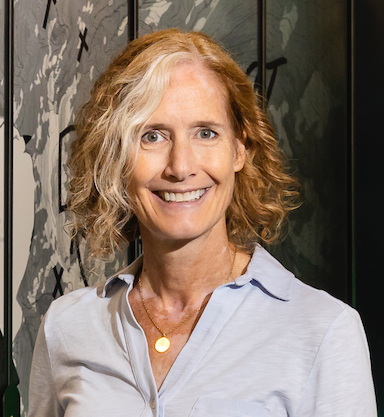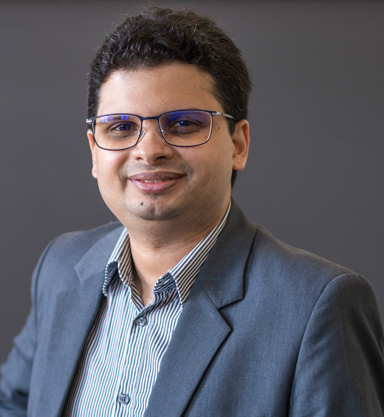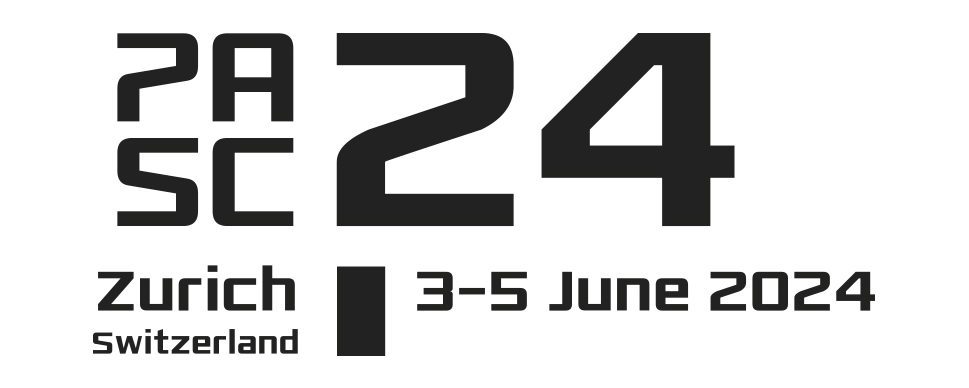Panel Discussion
Science as a Team Sport: How Do We Win Together?
This panel discussion will focus on the PASC24 theme: Synthesizing Applications through Learning and Computing. The panel will explore some of the specific challenges with opportunities when combining models, methods, and data from multiple domains, merging computing, learning, and simulation techniques, and explaining and bounding accuracy and uncertainties.
Moderators

Kate Evans
Oak Ridge National Laboratory, USA
Katherine J. Evans is the Division Director for the Computational Sciences and Engineering Division at Oak Ridge National Laboratory (ORNL). She is also an active researcher in the areas of Earth system model (ESM) evaluation, developing and implementing scalable numerical algorithms to improve the efficiency and accuracy for multi-scale configurations of ESM, and analysis of large-scale persistent weather patterns in global atmospheric models. As part of her numerical methods research with ESM, she also makes connections to other applications, including ice sheets, more general fluid flow, disease propagation, and oncology. Evans earned her PhD in Earth and Atmospheric Sciences with an emphasis in math from the Georgia Institute of Technology in 2000 and led the Computational Earth Sciences group at ORNL for 6 years before her current role. She is a member of the American Meteorological Society, American Geophysical Union, and the Society of Industrial and Applied Mathematicians.

Siddhartha Mishra
ETH Zurich, Switzerland
Siddhartha Mishra is a Professor for Computational and Applied Mathematics at ETH Zurich and a core faculty member of ETH AI Center. Mishra’s research interests are in numerical analysis, scientific computing, nonlinear PDEs, machine learning, high-performance computing and applications to physics and engineering. Mishra’s research has been recognized with many awards and honors including the ERC Starting Grant (2012), ERC Consolidator Grant (2017), GAMM Richard Von Mises Prize (2015), ECCOMASS Jacques Louis Lions Medal (2018), ICIAM Collatz Prize (2019) , INFOSYS prize in Mathematical Science (2019) and SIAM Germund Dahlquist Prize (2021). He has been an invited speaker at many leading international conferences including the International Congress of Mathematicians (ICM), Rio De Janiero, 2018.
Panelists

Ewa Deelman
Ewa Deelman received her PhD in Computer Science from the Rensselaer Polytechnic Institute in 1998. Following a postdoc at the UCLA Computer Science Department she joined the University of Southern California’s Information Sciences Institute (ISI) in 2000, where she is serving as a Research Director and is leading the Science Automation Technologies Center. She is also a Research Professor at the USC Computer Science Department and an AAAS, IEEE, and USC/ISI Fellow. Her research explores the interplay between automation and the management of scientific workflows. Deelman pioneered workflow planning for computations executing in distributed environments. Her group has led the design and development of the Pegasus Workflow Management software and conducts research in job scheduling, resource provisioning and data management in distributed systems.

Karthik Kashinath
Karthik Kashinath is a principal engineer and scientist in HPC+AI at NVIDIA. He co-leads NVIDIA’s Earth-2 initiative, which utilizes cutting-edge large-scale AI to build Earth digital twins for weather and climate applications. A current focus of Earth-2 is on adapting generative AI technologies that are transforming the industry for scientific computing. Karthik is trained as a mechanical and aerospace engineer with a Bachelors from the Indian Institute of Technology – Madras, Masters from Stanford University and PhD from the University of Cambridge. Prior to joining NVIDIA, he worked at Lawrence Berkeley Lab in climate informatics, big data analytics, and physics-informed machine learning for fluid dynamics and Earth system science applications.

Damian Rouson
Damian Rouson is a Senior Scientist and the Computer Languages and Systems Software (CLaSS) Group Lead at Berkeley Lab. He researches parallel programming models for high-performance computing and deep learning. CLaSS develops the Caffeine parallel runtime library, the Inference-Engine deep learning library, and the LLVM Flang Fortran compiler. He teaches tutorials on the UPC++ template library and has researched multiphase, quantum, and magnetohydrodynamic turbulence. He holds a B.S. from Howard University and a M.S. and a Ph.D. from Stanford University, all in mechanical engineering. He received a 2020 Better Scientific Software Fellowship and a 2023 Energy Secretary’s Achievement Award.

Michela Taufer
Michela Taufer, an ACM Distinguished Scientist, holds the Dongarra Professorship in High-Performance Computing at the University of Tennessee Knoxville. She completed her PhD in Computer Science from ETH Zurich. Taufer was a postdoctoral fellow at UC San Diego and The Scripps Research Institute, focusing on interdisciplinary projects in computational chemistry and computer systems. Her research spans high-performance computing, cloud computing, and volunteer computing, aiming to enhance AI for science. Taufer has held leadership roles at major HPC conferences and is the editor-in-chief of Future Generation Computer Systems. She is an advocate for diversity in academia and interdisciplinary research.

